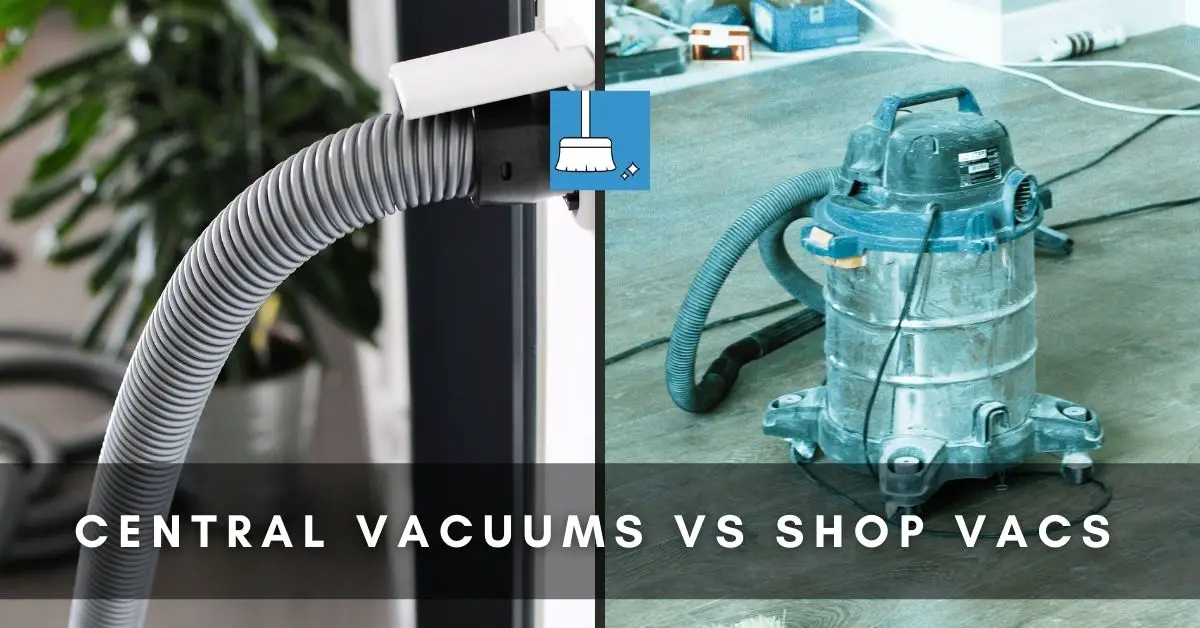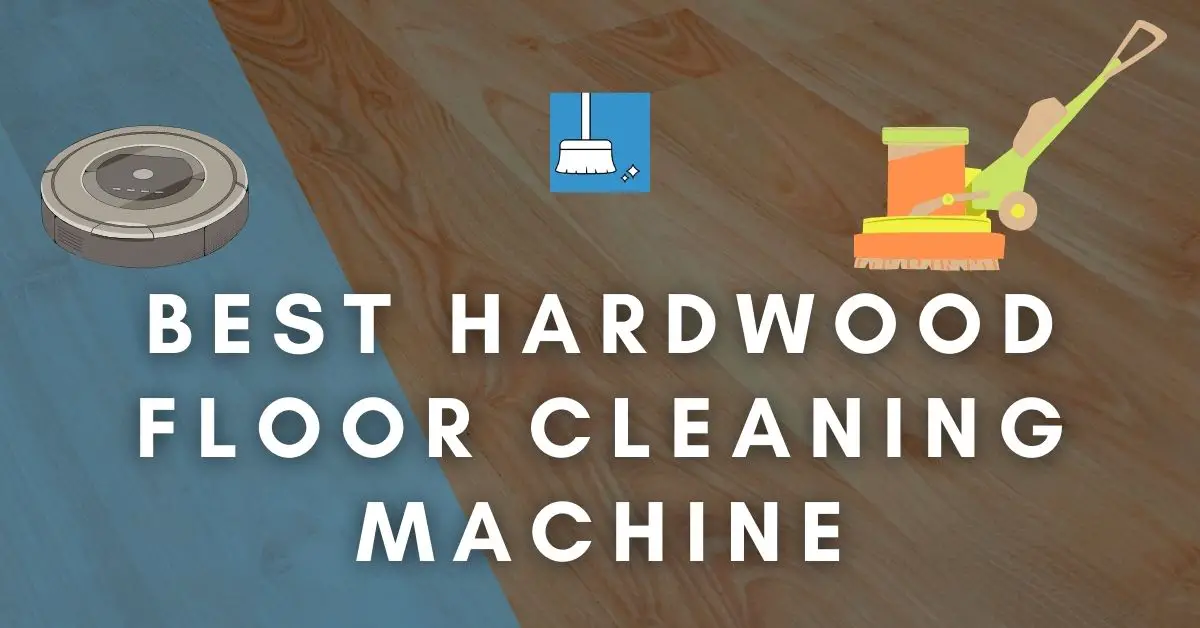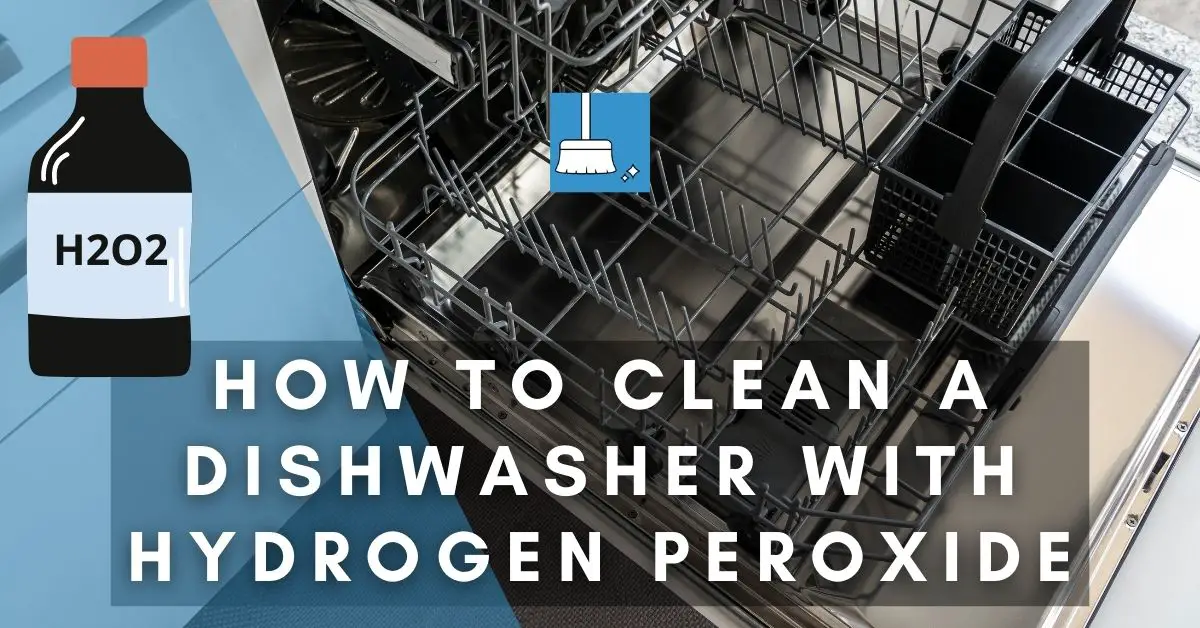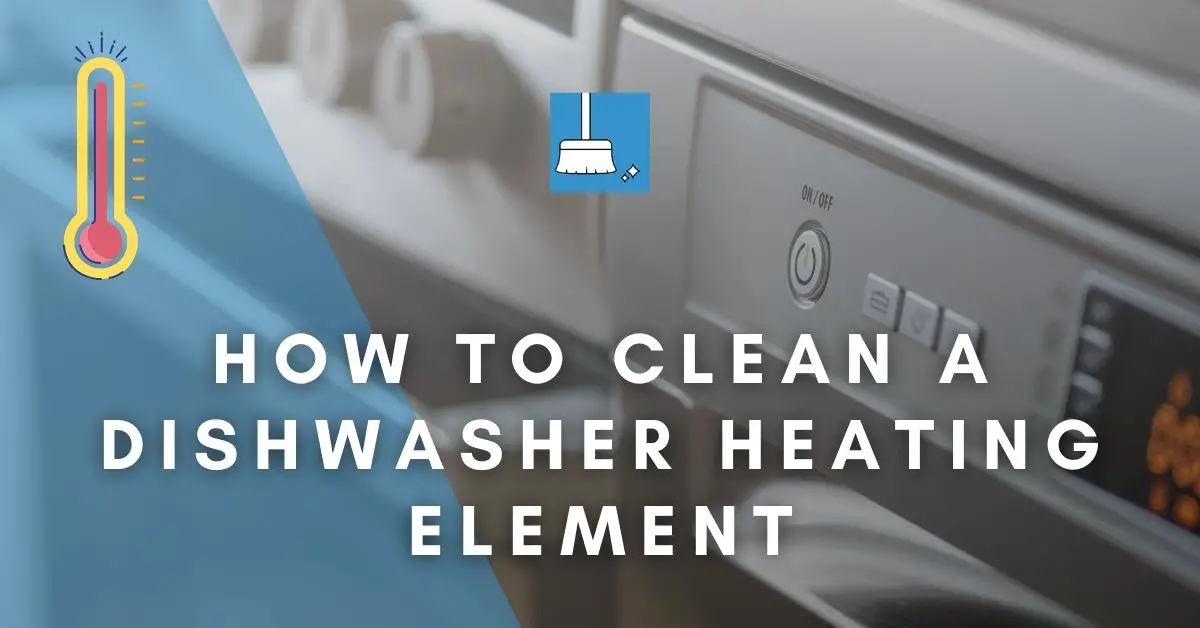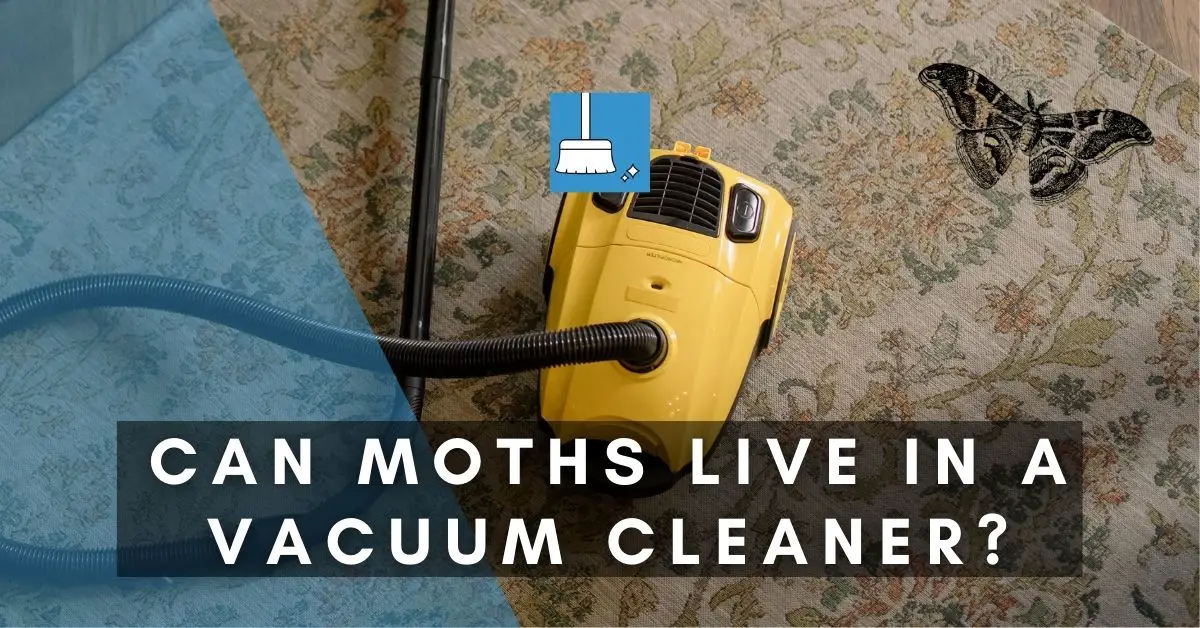High-power vacuums such as central vacuum systems and shop vacs are a go-to for homes and businesses because they make cleaning easier and faster, plus they are more durable than traditional vacuum cleaners.
For someone like you, looking to get a quality and affordable vacuum cleaner, knowing the differences between these two is essential before making a choice.
This article leaves no stone unturned as we discover all there is to know about central and shop vacs as well as the key differences between them.
Central Vacuums vs. Shop Vacs – A Detailed Comparison!
First, we’ll understand what Central Vacuums and Shop-Vacs are, including their features. Then, we’ll see the differences between the two vacuum types based on purpose & suitability, cost, performance, installation, and finally, ease of use.
What Is A Central Vacuum System? (& Its Features)
A Central Vacuum System is a convenient cleaning system in which an installed power unit or canister (located in a part of a building) runs several pipes within the walls of the building to an inlet valve that receives the long hose used for vacuuming.
This method of cleaning is commonly used in homes and industries. Central vacs are designed to suit different purposes and building sizes.
However, despite their various designs, several features are common to every model:
Air Watts
This is one thing you should look out for in any vacuum cleaner, especially the central vacuum system, because it determines the machine’s suction power.
According to the model purchased, the air watts of vacuum systems span from as low as 200 air watts to about 1400 air watts or even above.
The air watts you should look out for in a vacuum are determined by the size of the building.
Filter
Although specific filterless systems exist, every central vacuum system is expected to have a filter type.
Filters are essential; they help suck out harmful particles in air and debris that could harm one’s health and the machine’s motor itself.
These filtration systems include Inverted filter, cartridge filter, vertical bag filtration, etc. (Source)
Hose
The hose is important among other attachments of a central vacuum system because it is taken in hand and you vacuum up dust and debris with it. It also determines how far you can move around when it’s plugged into an inlet.
You can also add additional extensions to the hose to suit the cleaning need.
The hose length ranges according to brand type; nevertheless, a 30-50 ft hose would most likely be sufficient.
What Is A Shop Vac? (& Its Features)
Shop Vacs are bucket-like industrial vacuum cleaners designed and used primarily in workshops and construction sites. They are excellent filtering machines and vacuum systems whose purpose is to collect tiny debris as well as large-sized dirt like splinters, nails, etc.
Shop vacs are reputable for handling tough cleaning jobs. They are also available in wet-dry designs to get liquid dirt off surfaces.
There are several features common to every model that you should be acquainted with:
Blower
Shop Vacs often come with an in-built blower that can be employed anytime. With a change in the machine outlet, you can move from vacuum to blower.
Muffler
Shop vacs are relatively noiseless; however, certain shop vacs are noisy when turned on. A muffler is attached to the machine to reduce the humming sound.
Many shop vacs have this detachable accessory accompanying them.
Hose
Just like most other vacuums, a shop vac comes with a hose. For a better cleaning experience, a hose length of 30 ft. is a good choice.
Central Vacuums vs. Shop Vacs (Purpose & Suitability)
Central Vacuum
● The central vacuum system is designed to avoid the hassle of carrying around the central power unit during cleaning or it moving around, as in the case of upright vacuum cleaners, canisters, and others.
● It is designed for durability. According to the makeup of the central vacuum system, it can last for more than two decades and be reinstalled if you move into a new building.
● It performs a similar function to a regular vacuum; however, it has a more substantial suction power that sucks tiny debris seamlessly.
● Also, it is designed to ensure a noiseless cleaning activity.
As regards its suitability, a central vacuum system can function anywhere, except small buildings.
Before installing a central vacuum system and plumbing the pipes into your walls, apartment, or office, the first thing is to seek advice from local building officials and inquire if your building is suitable for the cleaning machine.
Shop Vac
● Shop vacs are intended to cover industrial, construction, and even home cleaning tasks.
● This vacuum system is manufactured to suck in dust and more heavy-duty waste materials than regular vacuums.
● They are also designed for strong suctioning. When it comes down to getting a messy workshop with splinters, pebbles, screws, tiny rocks, pebble, and liquid grim wiped and tidy, shop vacs are the best fit.
● They also act as a blower. This function enables it to perform tasks like unsettling clogged dirt and a host of other activities like inflating toys.
● Shop vacs can also be used for sucking water from an aquarium, pond, or shower.
Regarding suitability, shop vacs are more suitable for industrial sites and workshops; they could also be used at home but should be strictly employed for outdoor cleaning.
COMPARISON
When placed side by side in terms of purpose and suitability, shop vacs perform more functions (both cleaning and non-cleaning) than an installed central vacuum system.
Also, in terms of suitability, shop vacs rank higher as they could be used in building sites, artisan workshops, homes, etc., unlike a central vacuum system that is house- or office-bound.
Central Vacuums vs. Shop Vacs (Cost)
The price range of central vacuum systems depends on the brands available in the market.
Nevertheless, the cost of purchasing a central vacuum and getting it installed by a professional is between $1000-3000. This includes the purchase of other accessories.
On the other hand, there are several price determinants for a shop vac. These may include the brand, the shop vac size, and the quality of the material used in producing the vacuum.
The cost of a shop vac ranges from $50 to $300.
COMPARISON
Placing the prices of the central vacuum system and shop vac side by side, it can be seen that the cost of buying a top-grade central vacuum is more than that of a shop vac.
Central Vacuums vs. Shop Vac (Performance)
Central vacuums, with their intense makeup, are always the desired option for cleaning because of their longevity and the fact that they get the work done faster.
A central vacuum system can run for about 24 hours daily. Also, in terms of the motor horsepower of a central vacuum system, it rates at 14.7.
Users of shop vacs have noticed that the wet-dry cleaner could last for an overall 12 hours daily, in which each hour could last for about half an hour.
Also, in terms of the motor horsepower of a shop vac, it rates at 2.5 to about 7.
COMPARISON
Placing both vacuums side by side according to their runtime, we see that the central vacuum system lasts for more extended hours during cleaning time than shop vacs and has a higher horsepower.
Central Vacuums vs. Shop Vacs (Installation)
Central vacuum systems are pretty complex and require the expertise of professionals who have had hands-on experience installing the central vacuum system and having the PVC pipes positioned.
On the other hand, the shop vac does not require expertise to set up. It can be done by anyone.
COMPARISON
As far as installation hassles are concerned, the shop vac is less technical (perhaps not at all) than the central vacuum system.
Central Vacuums vs. Shop Vacs (Ease Of Use)
After installing the central vacuum, all that is needed is to attach the hose to an inlet, and then, cleaning can commence.
The same goes for the shop vac; cleaning can begin after setting up the hose is attached to the vacuum’s body and turned on.
With a central vacuum system, despite the length of the hose, getting dust off a fleet of stairs might be difficult. A central vacuum unit need not be carried from place to place as it is fixed in a certain location. You only have to carry the hose.
On the other hand, when using the shop vac, there might be a need to move the machine around from time to time, depending on the length of the hose.
COMPARISON
Both central vacuums and shop vacs are easy to use and operate. But a central vacuum might be a bit easy to use as you don’t have to carry weight (the canister) around when vacuuming large spaces.
Pros & Cons Of Central Vacuums
Pros
1- It has a strong suction power compared to regular vacuums.
2- It is easy to operate.
3- It has a long hose that enables movement while cleaning.
4- It offers lightweight operation as all you carry while cleaning is the hose while the central power unit is installed somewhere.
5- Central vacuums are known to help purify the air. So they are suitable for people with allergies.
6- Central vacuums are durable; they can last for two decades, depending on their maintenance.
7- Central vacuum systems provide a noiseless cleaning.
Cons
1- Central vacuum systems are expensive to purchase.
2- The restricted mobility limits their cleaning to in-house tasks only.
3- It doesn’t have a multi-functional purpose apart from cleaning.
4- It is limited to specific building sizes.
5- It requires a professional to install the machine.
Pros & Cons of Shop Vacs
Pros
1- It is designed for heavy-duty cleaning.
2- Its unique wet-dry features make the cleaning of liquid mess easy.
3- It can be used in workshops, construction sites, and homes (outdoor).
4- It is designed with an in-built blower.
5- It is easy to operate.
6- It does not clog easily.
7- It comes with a muffler to reduce the noise while cleaning.
8- It serves multi-functional roles apart from cleaning, such as blowing.
Cons
1- Liquid mixture with dry dirt tends to produce an offensive smell in the shop vac.
2- Some shop vacs are filterless, making the air hazardous and triggering allergies.
Can You Use Shop Vac As Central Vacuum?
You can’t use a shop vac like a central vacuum. Both vacuums play almost similar roles with their strong suction power but can’t replace one another.
A shop vac is designed for industrial cleaning, unlike the central vacuum system that can only handle simple in-house sanitation.
When it comes to Home cleaning, the shop vac is only suitable for outdoor cleaning and may not be the best fit for carpet, rug, or hardwood floor cleaning.
Final Verdict!
Shop vacs and central vacuum systems are excellent cleaning machines. They both perform distinct functions despite their almost similar characteristics. The most prominent differences have been clearly outlined.
It seems that for someone who has a low budget or wants to go for a more heavy-duty vacuuming (or vacuuming water), shop vacs will be ideal for them.
While if someone does have a higher budget and wants a vacuum with long life, or wants only home cleaning done without having to carry the canister, a central vacuum can be of help.

